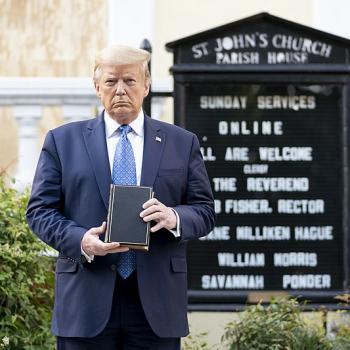
Plainly put, the “agreement” between Iran and President Obama (not, notice between Iran and the United States of America) is just that: It’s an agreement.
But, it appears to have many of the qualities of a treaty.
However, the Constitution plainly states that the United States Senate will ratify all treaties. If the Senate won’t ratify, the treaty is dead.
But presidents — not just this president — have been entering into these “agreements” unilaterally for quite a while now. These “agreeements” do not require Senatorial approval.
How did this happen?
It happened because the United States Congress wanted it to happen. They set this whole thing up to work this way.
Let’s talk about the “agreement” in question. It revolves around relaxing the economic sanctions against Iran. The most interesting part of these sanctions is that, for the most part, Congress did not create these sanctions. Congress passed laws that allowed the President to act unilaterally and create the sanctions himself.
So, when President Obama enters into an “agreement” with Iran in a unilateral, and dictatorial, fashion he is within the legal rights that Congress itself has given him. What he is negotiating in this particular “agreement” is a trade in policy change between Iran and himself.
He is offering to relax United States’ economic sanctions against Iran in exchange for a change in Iran’s nuclear arms development. I do not know what this entails. I can not guess if it’s a good idea or a bad one.
The reason he can do this unilaterally, without the Senate ratifying this “agreement,” is because presidents of the United States enacted these sanctions unilaterally in the first place. The reason they were able to do this is because Congress handed the power over to them. If Congress wants to rescind the statutes granting this power, it can do that. However, it needs a vote big enough to override a veto to get that done, which means that both parties have got to agree to it.
So long as We the People continue tolerating lock-step, straight-party-line voting, which is enforced by party discipline and big corporate campaign money which is also controlled by the parties, that won’t happen. We the People are a major player in this catastrophe precisely because we have allowed party propaganda to persuade us to regard our government like a football game where we cheer on our team.
We have forgotten that government is not a sport. It is deadly business that can kill people on a mass level and for generations. We have also forgotten that the only team that matters is team USA.
Let’s take a moment and look at the sanctions against Iran, since they are the main point of the agreement. Sanctions against Iran began after Islamic radicals of that day seized the American Embassy in Iran and took the staff hostage. This happened in 1979, when Jimmy Carter was president, and, in those relatively naive times, it was a huge deal. Huge.
The United States began its first economic sanctions against Iran during this crisis by ending US importation of Irani oil. This hardly crippled Iran, since lots of countries are willing to buy oil and they don’t care from whom. In 1983, President Reagan declared Iran a state sponsor of terrorism, and ended United States loans to the country. In 1987, the United States entered into an international embargo of Irani ships.
In the 1990s, fears of Iran developing nuclear weapons prompted President Clinton to ban all American investment in Iran and all trade with Iran. The administration froze the assets of companies who violated this ban.
Under President Bush, the United States began freezing the assets of foreign entities that did business with Iran, including companies, both foreign and domestic, who attempted to avoid sanctions by a loan-laundering process called a u-turn.
President Obama has been even more aggressive in his use of sanctions against Iran. He has issued sanctions against all trade with the country, even that involving food and medical supplies. In 2011, Congress got involved in all this by passing a bill that would freeze the assets of banks and other financial firms that did any business with Iran.
None of these Presidents were acting outside the law. Congress itself gave the presidency this power in much the same way that Congress has handed over its responsibility to vote on whether or not this nation will go to war. By the ruse of calling our wars “police actions” or “counter insurgencies” or some such, and bowing out of the decision, Congress has not only castrated itself, it has castrated the American people.
To get back to the “agreement” between President Obama and Iran, the whole thing involves these economic sanctions. The beauty of the sanctions is two-fold. First, not a drop of American blood was spilled on them. Second, they are working. Iran wants out from under them, and is willing to deal to get there.
This has led us to the supposedly nefarious and at this point, nebulous “agreement” between President Obama and Iran. President Obama has not hidden the fact that an agreement with iran is in the offing. I posted a video from 2013 in which he announced to the American people that the agreement was being developed.
What has changed is the political character of Congress. Republicans now control both the United States House and Senate.
I am not advocating for this agreement. I don’t know enough about it to have an opinion, either for it or against it. I may, after I learn more, oppose it vehemently. I may, on the other hand, support it. At this point, I just do not know enough to say.
But it is clear to anyone who will take off their partisan blinders that the agreement, and the whole question of nuclear war in the Middle East, is being used as a political football.
My concern here has nothing to do with the fact that a good many members of Congress are worried about the ramifications of this particular agreement. Thinking about these things is their job. They should be concerned about it, precisely because it is a grave issue. It is their job to worry about things like this.
I am also neither outraged nor dismayed because Congress invited Prime Minister Netanyahu to speak to a joint session of their House. It is their House, and they can invite anyone they want. Plus, I do not accept at all the idea that the President should be able to negotiate these agreements without input from both Congress and the American people.
We have a right to know. We also have a right to hear from all parties, including Prime Minister Netanyahu.
As I said, I have no quarrel with Congress wanting to be part of this process. I do not think they should have absented themselves from their responsibilities in the first place.
However, what I’m seeing is not a Congress that is doing its job. I’ve haven’t seen that in a long, long time.
From the 50 members who boycotted Prime Minister Netanyahu’s speech, to the 47 Senators who signed the letter to Iran — what I’m seeing is a Congress that has moved its partisan gamesmanship from domestic issues to foreign policy issues.
We need clear, intelligent discussion of this most serious issue. We need members of Congress who are concerned about this nation and who are willing to cross party lines as if there were no party lines to take whatever position they think is right. We are not a nation of the R and the D. We are a nation of We the People.
The Congresspeople we have now are not doing their jobs, haven’t done their jobs for a long time. They are grandstanding for the ’16 elections. In the process, they are endangering American security and, as usual, American lives. Anything they do on this matter or any other matter is tainted from top to bottom by partisan positioning for the ’16 elections. It has reached the point that I do not trust Congressional sincerity in any matter.
Congress has the power to propose initiatives of its own. But it is not doing that. The reason it is not doing that is that taking positive action imposes political risk and political risk might harm their political party’s position in the ’16 elections. I can not say this strongly enough: Members of our Congress are acting on behalf of the two political parties and the money interests that control them, not the American people.
I wish sincerely that Congress would use its clear Constitutional power to engage in the governance of this nation. That would require, first and foremost, that they start acting as duly elected representatives of the people and not party puppets. That would require them to start thinking and acting as individuals and not some sort of partisan Stepford Congress that marches blindly along party lines without any apparent sense of responsibility to this nation and its people.
The American people have become so inured to our elected officials voting along straight party lines that they have forgotten that this is the antithesis of democracy. These elected officials — of BOTH parties — are not representing their constituents. They are representing the special interests that control their political party.
I know, up close and personal, the price that political parties seek to exact against wayward elected officials who go off the reservation and vote their districts and their consciences. But that is what they are elected to do.
We the People need to get wise. We need to stop allowing ourselves to be flim-flammed by these two political parties and their constant games.
I’ve said it twice before. Now I’ll say it again. If we let them get away with spreading the corruption of their partisan gamesmanship into foreign policy, they are going to get us killed.













